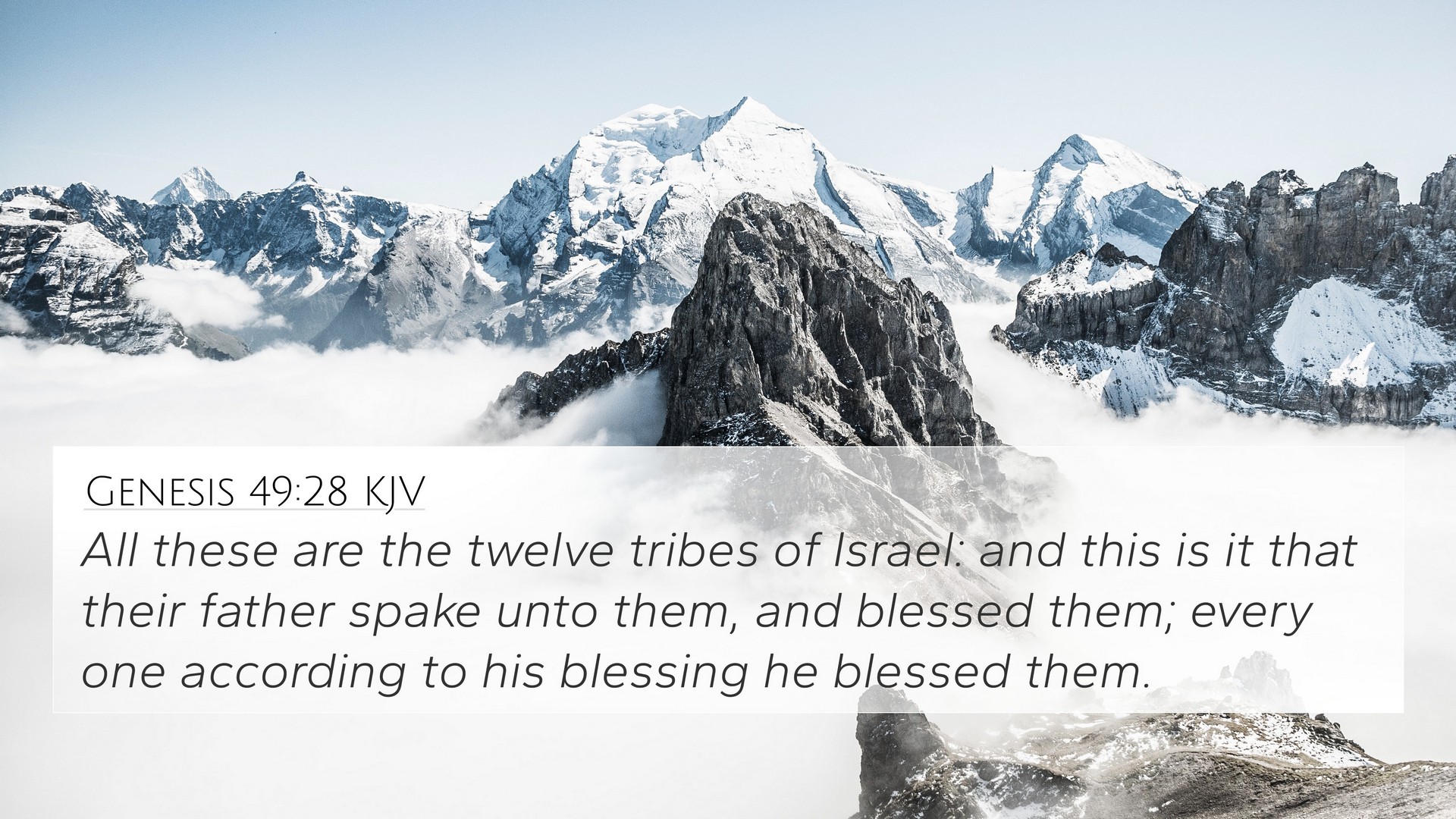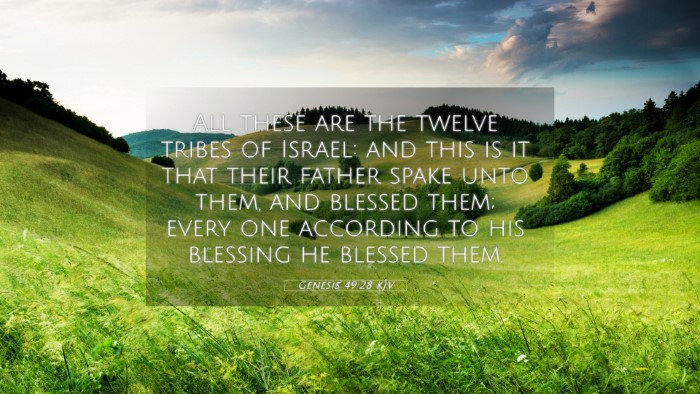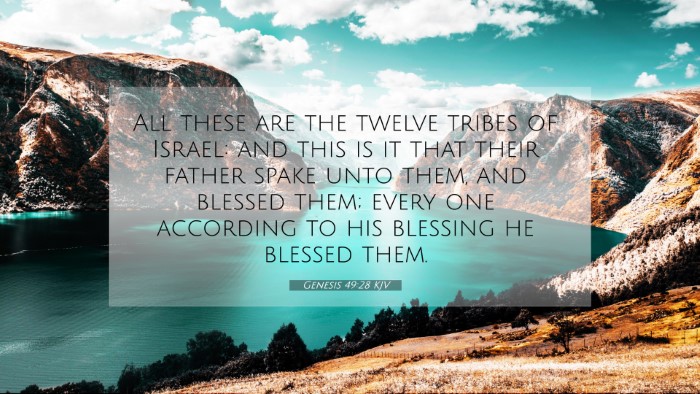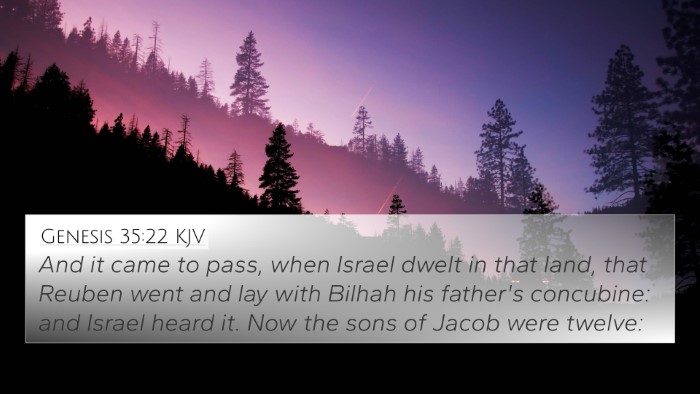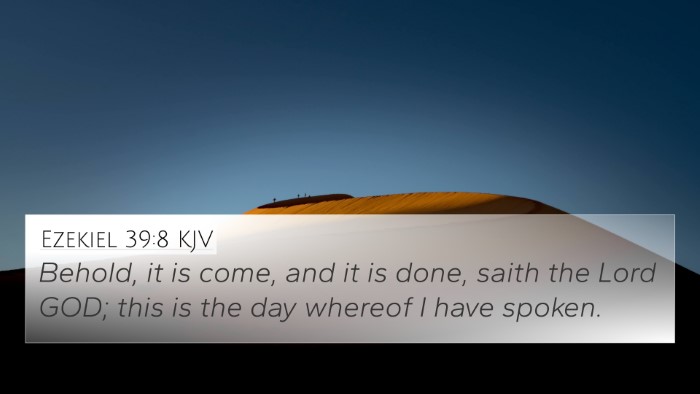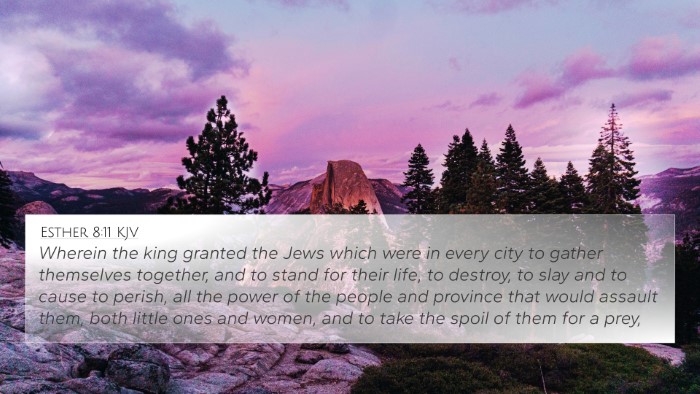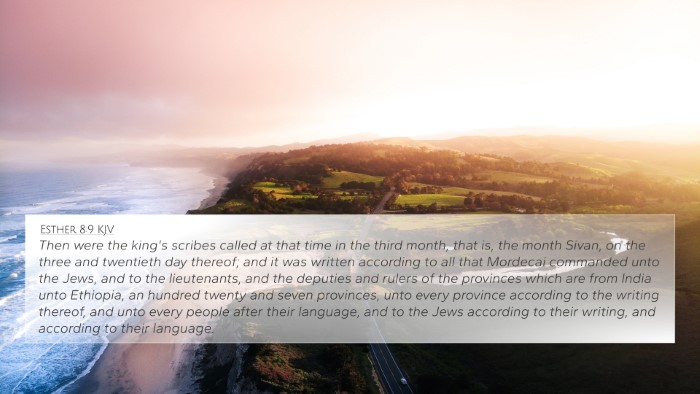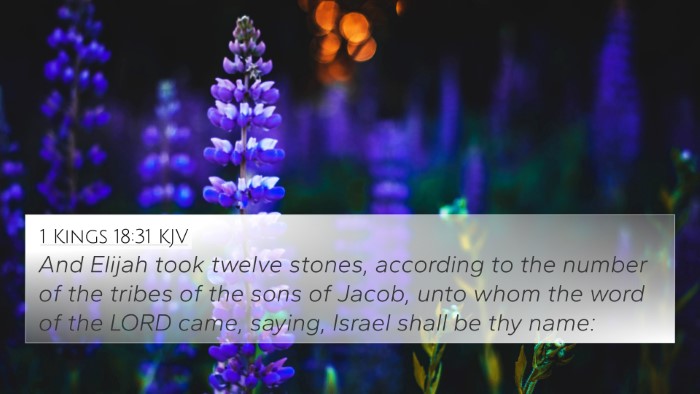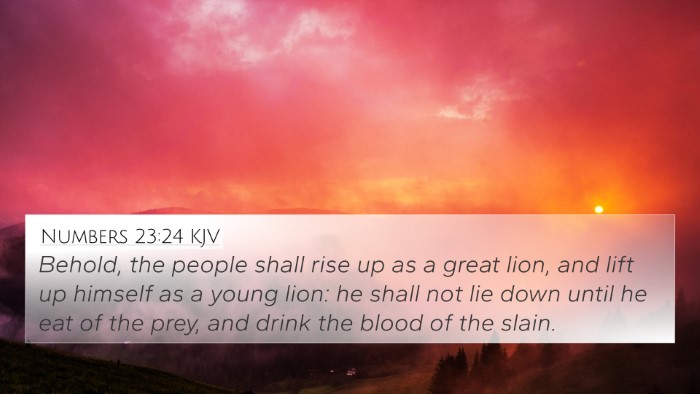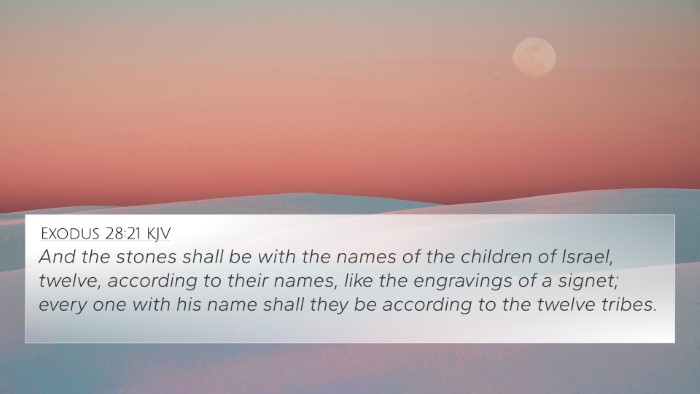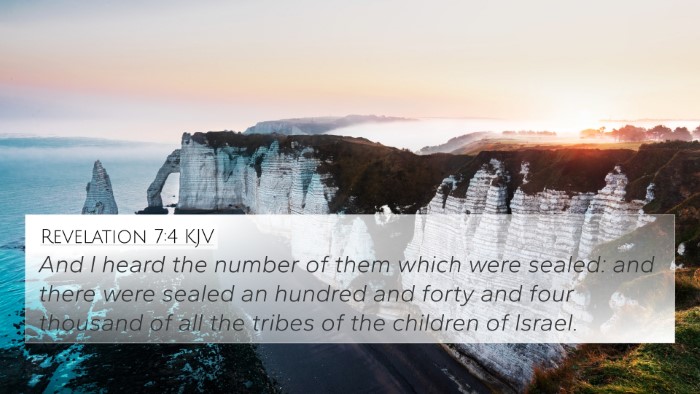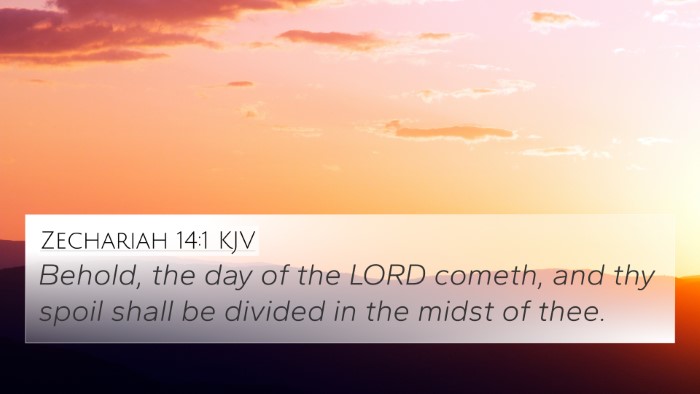Understanding Genesis 49:28
Genesis 49:28 states, "These are the twelve tribes of Israel, and this is what their father said to them when he blessed them, giving each the blessing appropriate to him." This verse encapsulates Jacob's final words and blessings to his sons, who represent the twelve tribes of Israel. The verse highlights the significance of each tribe in the unfolding narrative of Israel's history and God's covenant.
Insights from Public Domain Commentaries
Here we summarize insights and interpretations from notable commentaries to provide a comprehensive understanding of Genesis 49:28.
Matthew Henry's Commentary
Matthew Henry emphasizes the importance of Jacob's blessings as prophetic declarations over the tribes of Israel. He indicates that each blessing is tailored to the character and destiny of the individual tribe, illustrating God's providence and sovereignty over Israel's future.
Albert Barnes' Notes on the Bible
Albert Barnes points out that the blessings Jacob bestows are not mere paternal advice but divine utterances that shape the identity and future roles of each tribe. He notes the thematic connections between the tribes' characteristics and their eventual roles in biblical history, underlying the significance of divine blessing in shaping nations.
Adam Clarke's Commentary
Adam Clarke elaborates that this verse serves as a summary of Jacob's blessings given to all his children, effectively conveying that every tribe has a unique place and purpose. Clarke indicates that the blessings reflect the character of each son and foreshadow their descendants' behavior and mission in Israel.
Key Themes and Interpretations
This passage provides insights into:
- The Nature of Blessings: The blessings of Jacob serve as a reminder of the importance of recognizing God's hand in individual lives.
- Identity of Nations: The tribes represent more than mere familial ties; they embody God’s plan for Israel and the fulfillment of His promises.
- Divine Providence: Each blessing is interwoven with God's providential plan for Israel, reinforcing the idea that God knows the destiny of each tribe.
- The Role of Fathers: This moment underscores the significant role a father plays in imparting identity and direction to his children.
Related Bible Cross References
Genesis 49:28 serves as a central verse connecting various themes and narratives within the Scriptures. Here are key Bible cross-references that relate to this verse:
- Exodus 1:1-5: The listing of the names of the sons of Jacob who settled in Egypt.
- Deuteronomy 33: Moses's blessings to the tribes, which echoes Jacob's sentiments.
- Revelation 7:4-8: The mention of the twelve tribes of Israel in the context of the sealed servants of God.
- Matthew 1:2-16: The genealogy of Jesus Christ tracing back to the tribes of Israel.
- Romans 9:3-5: The significance of Israel as the lineage through which God's promises were fulfilled.
- 1 Chronicles 5:1-2: The genealogy and rights of the firstborn sons of Jacob, illustrating the inheritance of the tribes.
- Hebrews 7:14: The acknowledgment of Jesus's lineage from Judah, one of Jacob's sons.
Connections Between Bible Verses
This verse serves as an anchor for understanding the narrative of the Israelite people throughout the Bible. By linking these verses, one can grasp the broader themes of identity, calling, and God’s ongoing relationship with His chosen people.
Thematic Bible Verse Connections
Genesis 49:28 opens up a discussion on various themes such as:
- Covenantal Relationships: The ongoing relationship between God and the tribes as depicted throughout the Old Testament.
- Divine Promises: The unfolding of God's promises to Israel, seen in both the Old and New Testaments.
- Identity Formation: How the blessings imparted by fathers shape the identity of future generations.
Conclusion
Genesis 49:28 is a pivotal verse that encapsulates the blessings of Jacob over his sons, which not only define the 12 tribes of Israel but also serve as a reflection of God's overarching plan for His people. By employing tools for Bible cross-referencing, readers can explore the interconnectedness of biblical texts and gain a deeper understanding of God’s work through these families throughout the scriptural narrative.
